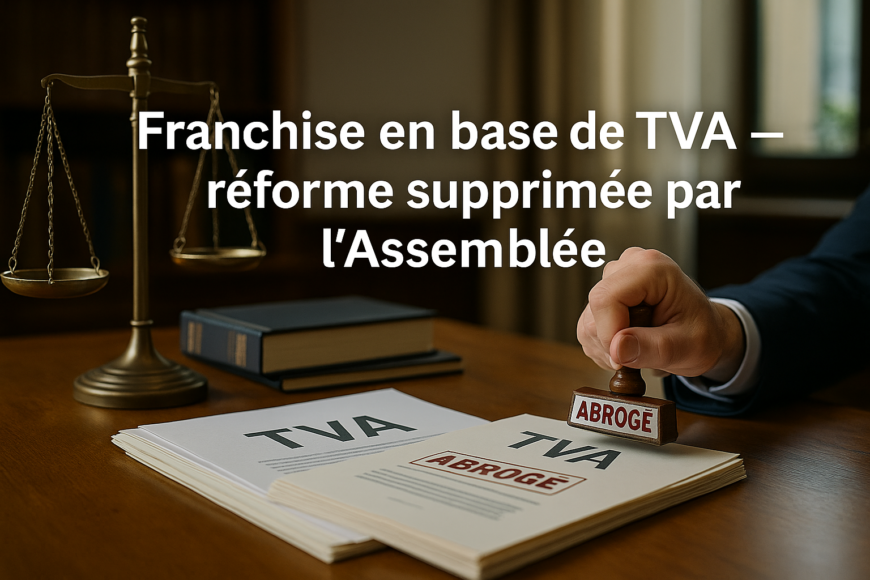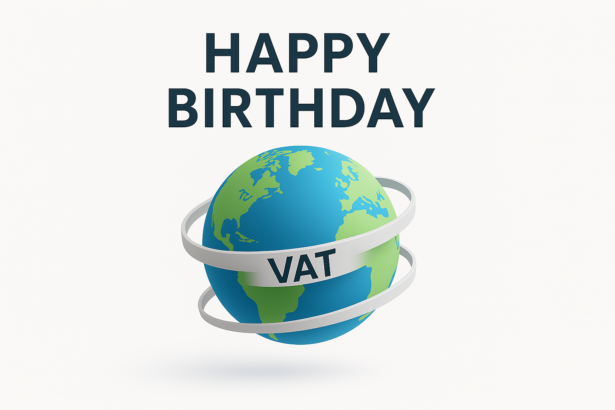SME VAT exemption scheme: French Parliament repeals proposed reform

On June 2, 2025, the French National Assembly unanimously voted to repeal the reform of the VAT exemption threshold, which was initially scheduled to come into force on March 1, 2025. The repeal was adopted via an amendment submitted within the legislative slot of the ERP group (Ensemble pour la République).
The bill now awaits final approval by the Senate, where no opposition is expected.
This vote brings an end to months of political and social tension surrounding this controversial VAT reform, already postponed several times — as discussed in our May 2, 2025 publication.
Background and initial proposal
Discreetly included in the 2025 Finance Act, the proposed reform aimed to lower the annual turnover threshold for VAT exemption to €25,000, instead of the existing thresholds of €37,500 for services and €85,000 for commercial activities.
The measure quickly sparked strong opposition from self-employed professionals, trade unions and MPs from all parties, who denounced the disproportionate financial impact on hundreds of thousands of micro-entrepreneurs, many of whom operate on tight margins and in highly competitive sectors.
Repeal mechanism and legal implications
The parliamentary vote went beyond a simple deferral: it fully repealed the original measure. This legislative choice — wiping the measure out entirely rather than amending it — significantly complicates any future attempt to reintroduce it.
Importantly, the repeal includes a retroactive effect from March 1, 2025, thus providing legal certainty for micro-entrepreneurs and preventing the tax authorities from claiming VAT retrospectively for the suspended period.
What’s next? The 2026 Finance Bill
While the reform is now off the table for 2025, it is not definitively abandoned. The Ministry for the Economy still has the option to reintroduce a revised version as part of the 2026 Finance Bill in autumn 2025.
The Government has already mentioned the possibility of a more balanced approach, particularly for sectors subject to intense price competition, such as construction and building services.
A possible return — but politically sensitive
From a legal standpoint, the Government retains the right to table a new proposal.
Politically, however, the situation is more complex: the unanimous vote in the Assembly has been seen as a symbolic victory for the self-employed and has strengthened the perceived legitimacy of the micro-business regime.
Any future reform would require a broad consultation process and must demonstrate competitive neutrality, or it risks triggering renewed resistance from stakeholders.
Immediate impact for businesses
For now:
- The current VAT exemption thresholds remain applicable for the 2025 calendar year.
- No changes will apply before 2026 at the earliest.
- No VAT is due retroactively on transactions performed since March 2025.
This fiscal reprieve provides temporary clarity for affected businesses, but the matter is far from settled.
BTOBNICE: Our VAT specialists remain available to support you with the evolving rules on VAT exemption thresholds, assess sector-specific impacts, and guide you through relevant fiscal optimisation strategies.



